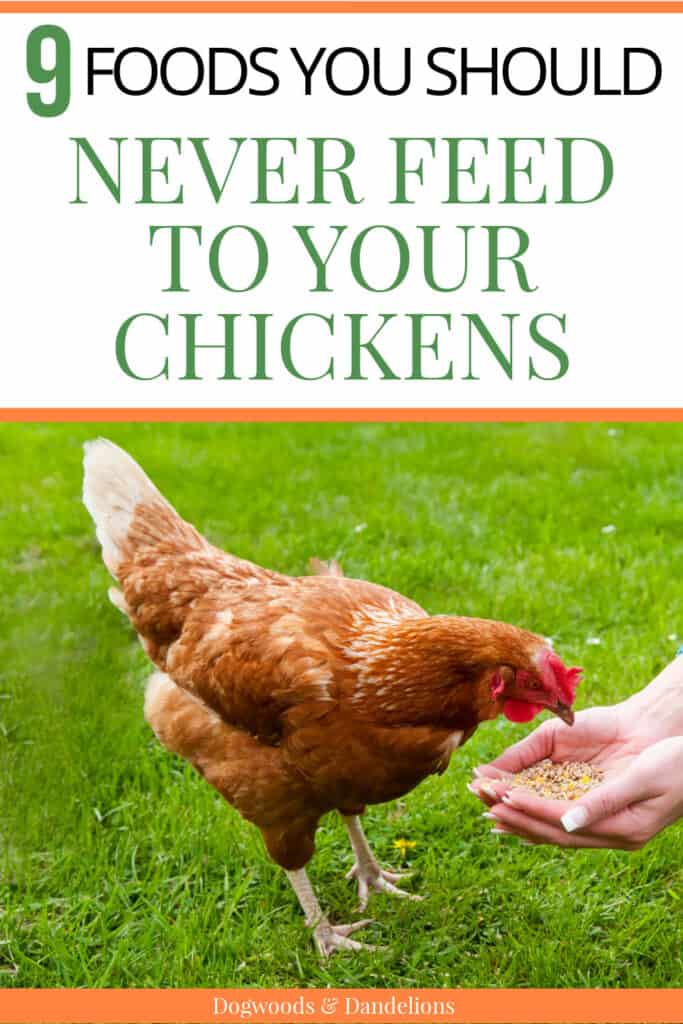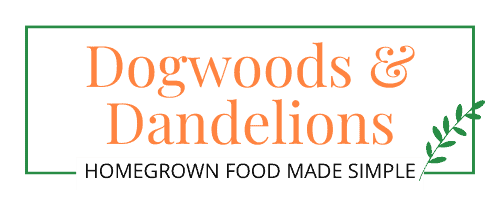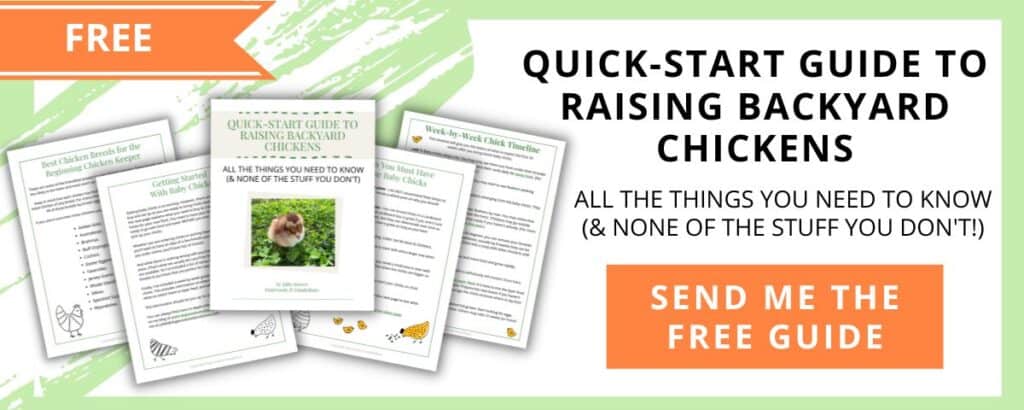Foods You Should Not Feed Your Chickens
Inside: Learn the most common foods you should not feed your chickens.
Backyard chicken owners often purchase chickens to save money buying eggs and have a way to use up extra food scraps. Feeding your flock your extra food is a great way to cut down on your chicken feed bill. And if your hens are like pets, you probably love to give them treats and healthy snacks.
However, there are some foods that provide little nutritional value to your flock. And there are many foods that can cause health problems or serious illness to chickens in large quantities.
Unfortunately, a few foods can be deadly to chickens even in small amounts. While this is obviously not a comprehensive list of foods you shouldn’t feed your flock, it will guide you in deciding what to feed your laying hens and the foods you should avoid feeding your chickens.
Affiliate Disclosure: Please note that some of the links in this article may be affiliate links and I may receive a small commission if you purchase something through a link. It will not change your cost. As an Amazon Associate, I earn from qualifying purchases. For more information, see my disclosures page.)
What Foods Are Poisonous to Chickens
While this is obviously not a comprehensive list, the following foods are some of the most commonly encountered leftover food and scraps that can be poisonous to your flock.
Apple Seeds
Apple seeds contain cyanide which is poisonous to both humans and chickens. While the accidental apple seed is not likely to contain enough to kill a chicken, (And some would say it takes many apple seeds to cause harm.) I still prefer to err on the side of caution and avoid giving them to my flock. Apple cores (with the seeds removed) and apple peels are both safe for your flock.
Dried or Uncooked Beans
Dried beans and uncooked beans can be toxic to your chickens. The dry beans contain phytohaemagglutinin, which is deadly to both humans and chickens. Even 3 or 4 raw beans are enough to kill a chicken.
Cooking the beans properly makes them safe. But they should be soaked and then boiled for at least 30 minutes. So cooking beans in a slow cooker is not enough. Kidney beans contain the most phytohaemagglutinin, so we have chosen to avoid them altogether. (If you are curious, just google it!)
Avocados
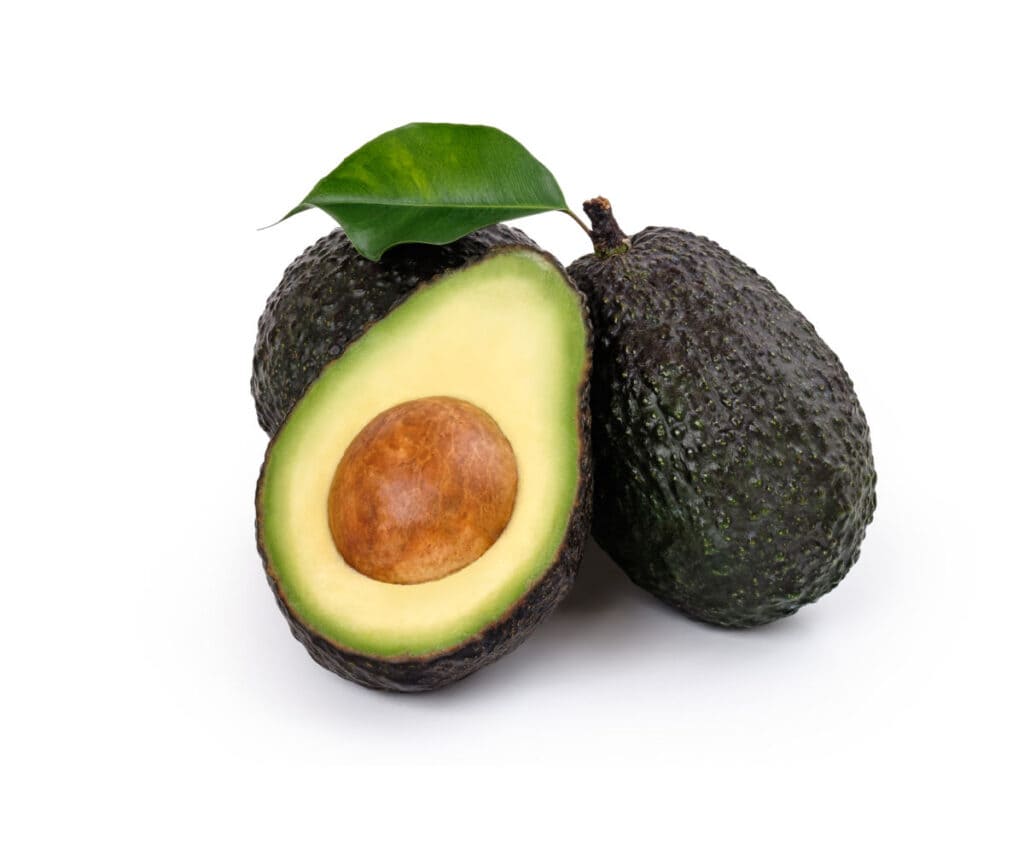
Avocados contain persin. Persin is a toxin that can cause heart problems in your flock. Most of the persin is contained in the skin and pit of an avocado.
But a small amount is still in the flesh. Never feed your chickens avocado pits or skins, but some people say a little of the flesh is okay. To be on the safe side, we choose to avoid feeding any parts of the avocado to our chickens. In my opinion, it’s just not worth the risk.
Rhubarb Leaves
The leaves of rhubarb are dangerous to chickens and humans. They contain oxalic acid that can cause jaundice and tremors in your flock. If you grow rhubarb, be sure to grow it where your chickens can’t get to it.
Green Potatoes & Green Tomatoes
Both green potato skins and green tomatoes contain solanine, a toxic substance that is harmful to chickens whether cooked or raw. Solanine can cause diarrhea and heart failure in chickens. It can also destroy red blood cells.
And cooking the green potatoes and tomatoes doesn’t change the danger.
Green tomatoes also contain solanine but in a different form called tomatine. There is conflicting advice on whether this is harmful to your chickens. I prefer to avoid feeding my chickens green tomatoes anyway.
However, cooked red tomatoes and cooked potatoes with no green spots are safe. A few raw tomatoes are okay occasionally too.
Nightshade Plants
The leaves of many nightshade plants can be toxic to chickens. Members of the nightshade family include tomato plants, pepper plants, eggplants, and potatoes, as well as both gooseberries and goji berries.
These plants contain solanine, just as the fruits do, so it is best to avoid allowing your flock access to these plants.
If you grow a vegetable garden and raise chickens, it is a good idea to fence off the garden to keep your flock from nibbling on these plants.
While a bite or two of the plant isn’t likely to harm them if they do have a taste, you don’t want to throw your spent tomato plants in your chicken yard for them to eat. Throw nightshade plants in your compost pile instead.
Chocolate
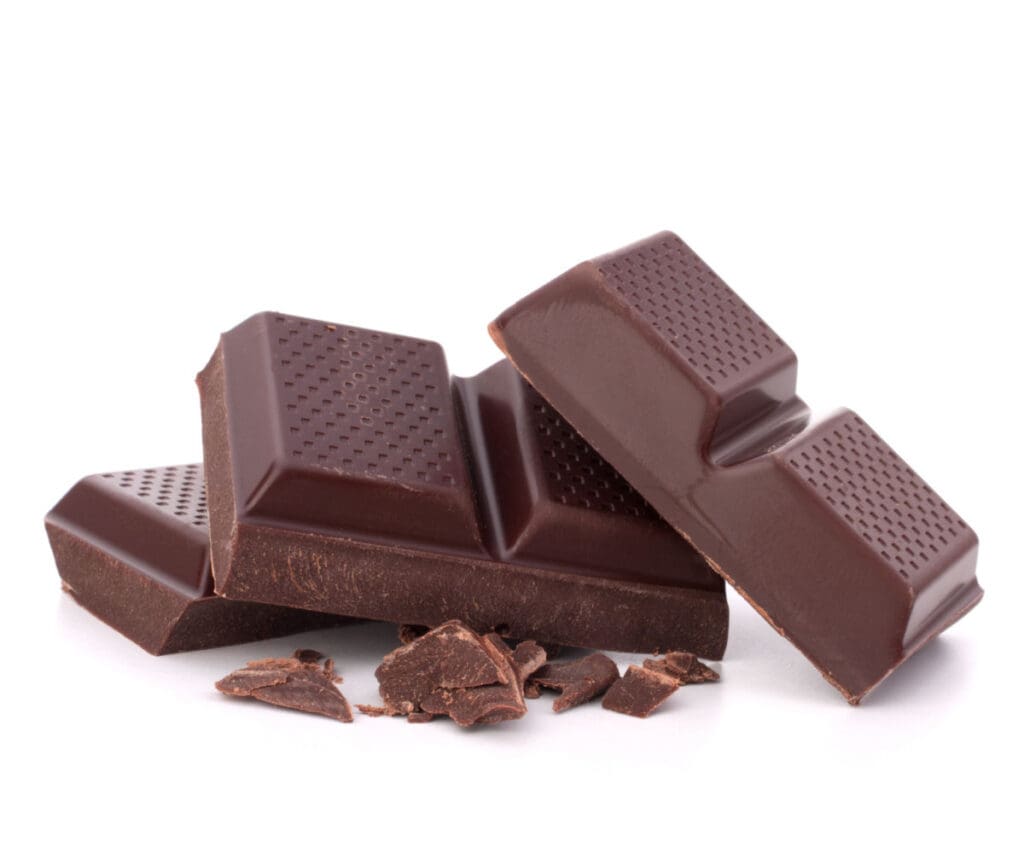
Chocolate is harmful to chickens just like many other mammals. Chocolate contains theobromine which mammals metabolize more slowly than humans.
The darker the chocolate, the more theobromine it contains. While a bite or two is unlikely to cause lasting harm, your chickens shouldn’t be given chocolate anyway. Save the chocolate for yourself!
Onions
Onions can be toxic to your chickens in large amounts. Notice I said large amounts. I wouldn’t worry about the occasional piece of onion that might slip in with other table scraps.
Onions contain sulfur which can cause jaundice or anemia in your birds. But I also wouldn’t purposely feed my chickens onions anyway. Too much onion can make your eggs taste oniony!
Citrus Fruits
Citrus food should also not be given to your chickens. While not necessarily toxic, numerous studies have found that lots of citrus can cause a drop in egg production.
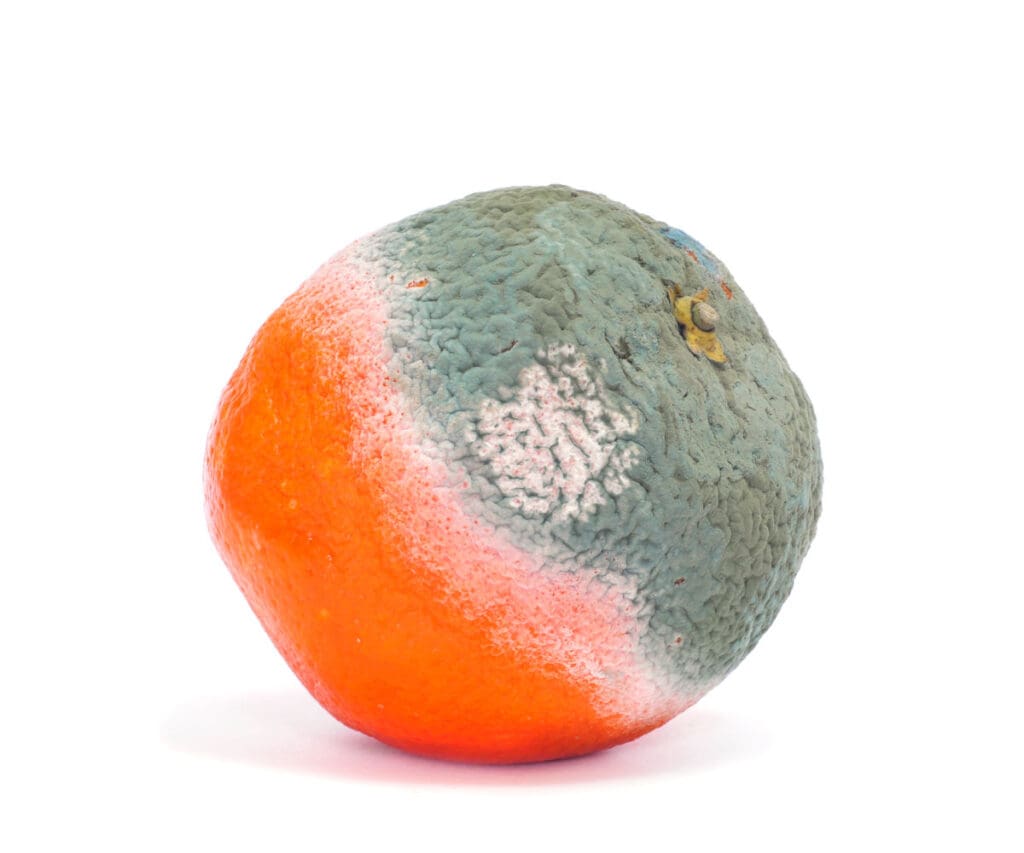
Moldy Foods
It should go without saying, but I’m saying it anyway…Don’t feed your flock moldy or spoiled food. There can be any number of toxins in moldy food. Make sure your chicken feed is kept dry too. Immediately throw out any feed that has gotten wet and could start to mold.
Other Toxic Plants
There are also many flowering plants that can be toxic to your chickens. And there are likely even some toxic weeds that might be growing in your yard. But there is no need to research and pull up every toxic plant in your yard.
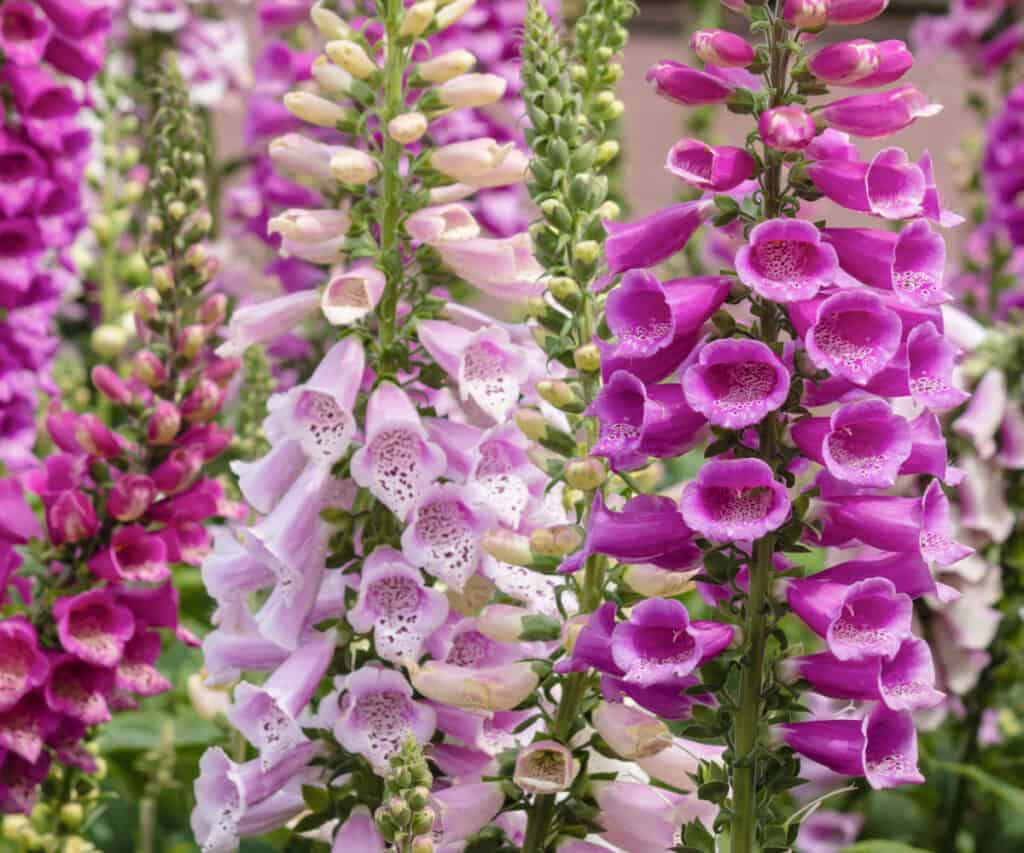
Generally, if you provide your flock with a balanced diet, your chickens won’t eat the toxic plants or flowers when you allow them to free-range. Azaleas are said to be toxic to chickens, but in the 12+ years we’ve been raising hens, they’ve never paid any attention to the ones in my yard.
Other Foods That Aren’t Recommend for Chickens
There are quite a few other foods that aren’t recommended to feed your chickens. Most junk food, like potato chips and sweet treats, isn’t healthy for your flock. (Just like they aren’t healthy for humans!)
Food with too much salt, (restaurant leftovers for instance) and lots of dairy products aren’t really a good option for your chickens either.
You will notice that I generally take a cautious approach to feeding my chickens. To me, it isn’t worth the risk to give them something that could potentially harm them.
As a chicken keeper, it is my duty to keep my flock safe. So I provide a well-balanced commercial poultry feed to ensure they are receiving essential nutrients. The majority of a chicken’s diet should be made up of layer feed or foraged food.
What To Feed Your Flock of Chickens
By now you are probably wondering what you CAN feed your flock. Chickens are really easy to feed. You need to purchase a complete layer feed and feed your flock daily, whether they are confined to a coop and run or whether they free range.
I also recommend purchasing some oyster shells and offering it free choice to all laying hens. This will help prevent soft shelled eggs.
Once you purchase a brand of commercial feed, you should plan on sticking with that brand of poultry feed. However, I do understand that sometimes situations change and you are unable to locate the same brand. If you must switch, be sure to mix the two brands together for a week or so to help prevent digestive issues.
And always, always, always provide your flock with fresh water at all times.
I keep treats to a minimum and ensure that any kitchen food scraps they do receive, actually provide some nutrition and aren’t harmful at all.
Small quantities of a healthy treat (like scratch grains or dark leafy greens from my vegetable garden) are fine every so often, but excessive amounts of food items can cause a decrease in egg production in your backyard chickens.
While this is by no means an exhaustive list of what not to feed your chickens, it should give you an idea of some of the most dangerous foods for your chickens. As responsible chicken keepers, we should always try to do what is best for our flocks and that means avoiding feeding these toxic foods to our chickens.
Related Posts
- Should you let your chickens free range? Learn the pros and cons.
- Are Chickens Vegetarian?
- Ways to use herbs in the chicken coop
- How to stop your chickens from eating their eggs

Meet Julie
I’m a farm girl born and bred in North Carolina. I’ve been growing a vegetable garden for over 20 years (and helping my Mom grow hers even longer). I’ve been raising chickens in my bathtub and backyard for 12+ years. I believe that homegrown food can be made simple. Let’s get started.
